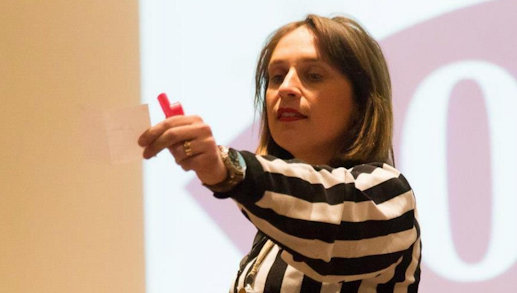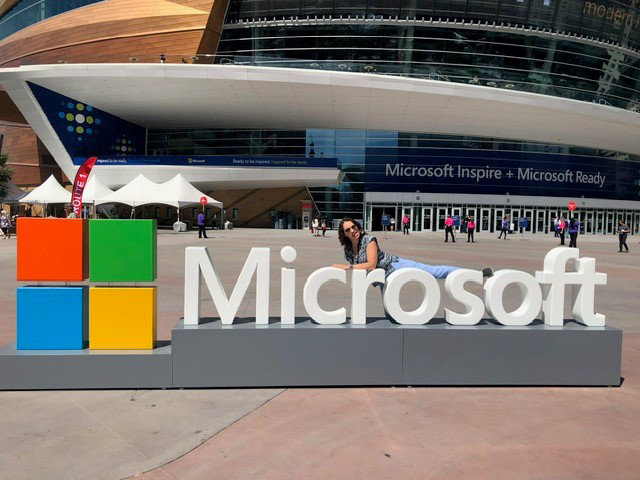Severine Guilliet
Paris, France
Technical Architects at the Hub coach clients through their digital transformation. Microsoft’s biggest customers walk through the doors looking to them for guidance, inspiration, and creditability. Who, then, coaches the Architects?
That task falls to Hub Directors like Severine Guilliet, who are charged with ensuring the team of Technical Architects are fluent in today’s latest technology, while grounded in the fundamentals of good business.
“It is a very incredible job…I have an incredible team…Everybody loves technology and applies it to their own life.”
The team at her Paris office: A data expert who builds healthcare apps for new parents like herself; a consultant who networked a beloved French soda brand; a blockchain expert working with a global fashion house; a 30-year Microsoft veteran with incredible perspective on the company’s own digital transformation journey, and a few more.
Two things they all have in common: Deep expertise in one or more essential technologies, and an unwavering commitment to leveraging the entirety of the Microsoft portfolio to deliver digital transformation.
Depending on where a customer is in their transformation journey, a range of very different engagements can be delivered to meet them where they are – whether that’s right at the start of problem definition; or creating a technical architecture; or coding parts of a solution to prove out technical risk. Engagements are at least a day, with some considerably longer.
“That gives us plenty of time to create intimacy,” she said, “which is quite important. We have the customer really engage with us.”

“That gives us plenty of time to create intimacy ... which is quite important. We have the customer really engage with us.”
“What I like is understanding the business challenges of the customers. Not just selling something so that they buy, but selling them what they really need. And that's the Hub because we are across all of Microsoft’s solutions. That helps us to bring really good value and the customers love that.”
All Technical Architects join the Hub as experienced hires - experts in their respective technologies. Regardless, they still undergo a three-month training program called Hub Essentials before they start shadowing other TAs on engagements. It takes a unique individual to become a Technical Architect. Superior technical skills and varied background are a given, but a successful TA will thrive on the variety of their work. They need to know how to learn, curiosity is a must, and, “most of all we need to be agile, because it’s never the same week twice.”
“When they come to me and say, hey, I have really understood this specific business problem, I always try to understand how and why, and then I may challenge some points. We do individual coaching sessions but also discuss results in team meetings to create an efficient collective intelligence.”
Guilliet, once an Azure sales representative, saw her own technical and sales skills evolve once she joined the Microsoft Innovation Hub program.
“When I arrived at the Hub ... this aspect of cross-solution that they were bringing to the customer was just the best value ever. I thought that I was a very good Azure sales rep. But after spending time here, I realized that I would have been even better if I had known the full Microsoft platform the way we do here.”

"most of all we need to be agile, because it’s never the same week twice"
The knowledge it takes to envision new futures for a business isn’t static. Technical Architects must continually renew their approaches to digital transformation as technology evolves, and client needs evolve with it.
“Before Covid people came in with the expectation ‘ok show me what I can do.’ And now they come with a real business challenges to solve. At the beginning of Covid we further developed the collaboration tools we use and fixed a lot of the processes that weren’t working remotely. And now because of the arrival of AI, because clients upgraded their technology thanks to Covid, now they want to see what’s going to be next. They want to be at the forefront of generative AI.”
The first Microsoft Technology Center opened its doors to clients back in 2000 (Microsoft Innovation Hub was named MTC until 2024). The program has thrived by staying relevant – it turns out understanding a customer’s business challenge and finding a solution to exactly meet it never goes out of fashion. The technology Guilliet’s team are leveraging has changed, but the singular focus on personalized solutions has not. That is the key to the storied history and continued success of the Hub program.
